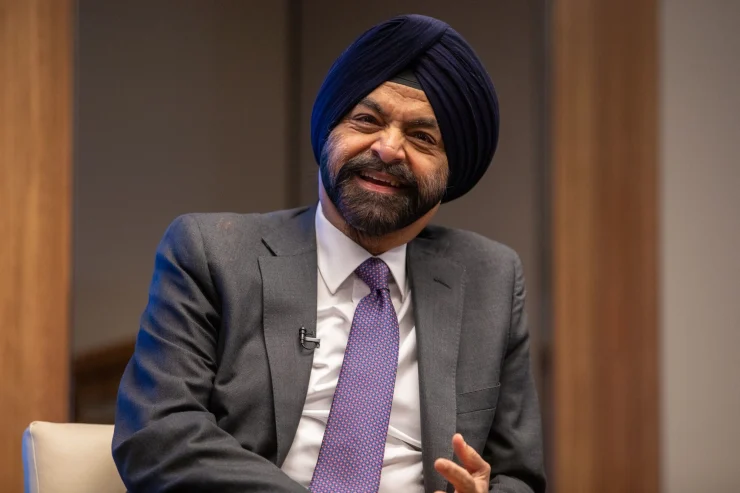The president of the World Bank is due in Australia this week offering to be a force-multiplier for good in the Pacific Island states, and expecting some federal funding to do so.
In the first visit by a World Bank head in seven years, Ajay Banga is to meet Prime Minister Anthony Albanese and other ministers to brief them on his plans and to seek an Australian top-up to the bank’s development funds.
The Washington-based institution is the world’s biggest and oldest multilateral development bank, created after World War II to help lift the poorest countries out of poverty. It made total grants and loans of US$91 billion last year to 75 recipient nations.
Signalling a new commitment to the Pacific Island states, Banga plans to travel from Australia to Fiji and Tuvalu. It would be the first visit to Fiji by a World Bank head in 50 years, and the first ever to Tuvalu, a frontline victim of rising sea levels.
Banga is inviting Australia to contribute to the replenishment of the bank’s assistance facility for the poorest nations, the International Development Association (IDA).
Australia contributed US$369 million to its last top-up in December 2021, when total subscriptions from rich nations amounted to U$S93 billion. Australia’s share was 1.5 per cent of the capital contribution, net of leverage, making it the 18th biggest funder. Australia’s economy is the world’s 13th biggest and the eighth biggest among wealthy nations.
Banga said the target for the current round, designed to last three years, was US$120 billion, an increase of about 30 percent. If Australia were to make a contribution in the same proportion to meet this new target, it would supply US$424 million (AUD$650 million) in taxpayers’ funds.
“I think Australia does a lot in its neighbourhood now, but I can help multiply what you do in that neighbourhood,” Banga said in an interview with this masthead.
“Because, number one, if you both do it together, we can get more synergy, but number two, every dollar that the government of Australia gives me for IDA becomes four dollars because we are able to leverage from the bond markets, and then I can use that in turn.”
Treasurer Jim Chalmers and the Minister for International Development and the Pacific, Pat Conroy, are expected to bring a submission to the federal cabinet on the matter in coming weeks.
Banga, appointed by the Biden administration, has made climate change a core mission of the bank, in contrast to his predecessor, David Malpass, a controversial Trump appointee and climate sceptic.
Banga has added an extra clause “on a liveable planet” to the bank’s long-standing mission statement – “a world free of poverty”.
The World Bank is the globe’s biggest funder of climate change projects, delivering US$29.4 billion last year and planning more than US$40 billion in the current financial year across its two main financing facilities.
Banga said he intended mainly to listen and learn the needs of the Pacific Island nations during his visits to Fiji and Tuvalu. The World Bank has already committed US$2.8 billion to 87 projects across the region.
The needs of small island states, he said, “are pretty unique”.
“They all have to do with adapting to the downstream effects of climate change. They have to do with the fact that one hurricane could wipe out double digits of their GDP.”
He said jobs were central. If education, training, jobs, dignity and hope were not available for young people, they’d migrate: “You won’t have a critical mass left for these societies.
